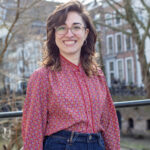De laatste jaren zijn er veel ontwikkelingen geweest op het gebied van Open Science en FAIR-onderzoek. Wat betekent dit allemaal en waarom is dit relevant?
Open Science verwijst naar het doel om wetenschappelijk onderzoek participatief, inclusief, transparant, toegankelijk en FAIR te maken. Het onderliggende doel is om wetenschappelijk onderzoek af te stemmen op maatschappelijke behoeften en de maatschappelijke impact van onderzoek te vergroten. In 2023 is een taskforce opgericht om het ambitiedocument en de rolling agenda , which was established by the National Programme Open Science.
As PhD candidates, we all want to have an impact in our field, and hopefully beyond. But how do we know where to start? What experiments have already been done by our predecessors? In reality, there is much data that never gets published. Either mistakes are made, or hypotheses were rejected. Knowing which experiments failed, and why, is essential so as to not commit preventable mistakes. This is where the FAIR Data Principles come in. So what is FAIR? As it is a catchy acronym, it is easy to forget that it is – in fact – an acronym. Specifically, it stands forFindability, Accessibility, Interoperability, and Reusability of data. These four principles are by no means static, nor are they the same for every discipline. They should be frequently evaluated and aligned with the type of data concerned and whether the data contains sensitive information. A key component of FAIR is making data as open as possible and as restricted as necessary. You can read more about the FAIR guiding principles here..
Then, after having spent four (or more) years on studying our topic of choosing, our work gets published in a journal or in a monograph, to be read by a small niche of experts in our field. Open Science also involves making our research more accessible to researchers from other fields, policymakers, and civil society. This partly entails publishing in Open Access journals, but it doesn’t end there. We also need to communicate and publicize our work more actively. To help Early Career Academics, The Dutch consortium of University Libraries and the National Library of the Netherlands (UKB), together with Universities of the Netherlands (UNL), the Dutch national center of expertise and repository for research data (DANS) and the Dutch Research Council (NWO), published a practical guide .
